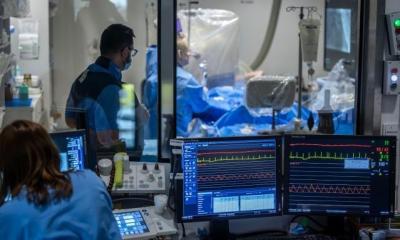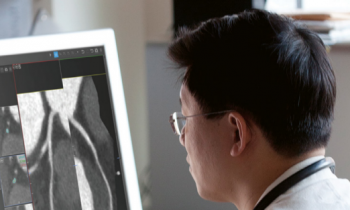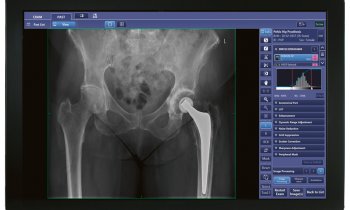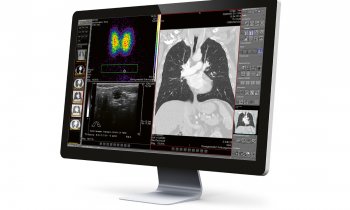Germany’s healthcare IT is ‘average’
‘Germany has realised that something must be done,’ Professor Britta Böckmann of Dortmund University of Applied Sciences and Arts, concludes, referring to a 2012 study from Accenture that showed this country to be only average in expandable healthcare networking compared with other countries.
Report: Chrissanthi Nikolakudi

However, the health informatics expert did have some good news at this year’s PACS and More! Symposium in Mainz: ‘Germany is at the forefront in many areas, such as in the use of IT in the hospital in general, in radiology and in the provision of PACS systems.’
Another area of the study, ‘Co-Evolution’, refers to the extent to which top-down-strategies and grass roots projects are being implemented. ‘We have good individual projects, good technologies and also, in some regions, great solutions. However, what we haven’t managed to achieve yet is to make these solutions generally available in a standardised way.’
More joint efforts
Let’s take the examples of telemedicine and tele-monitoring: Whether or not a patient is offered these new services and methods usually depends on where they live and whether or not there is a respective pilot project in the immediate vicinity. It obviously also depends on whether the patient’s health insurance is partnered up with the pilot project. ‘This level of healthcare in Germany does not meet our requirements,’ Prof. Böckmann says. ‘Healthcare services provided via the internet are another area where other countries are showing us the way.’
In Switzerland some providers enable patients to send e-mails describing their symptoms with photographs attached. They then receive expert answers advising how to deal with their problems and whether they need to consult a doctor. ‘I’m not saying that I can see Germany providing medical treatment only via the internet,’ she points out, ‘but I find it very frustrating that there are no efforts here to see and try how far we can go and to what extent medical care can be supported with the help of IT and the internet.’
Why? ‘We have no funding concepts based on caring for patients comprehensively and, as yet, there is no agreement as to which data can be exchanged across different sectors. These processes depend on the individual indication. Disease management programmes are a good example. The concept of the electronic patient record (EPR) will also not move forward without central, standardised initiatives.’ Prof. Böckmann would like to see more joint efforts.
‘It’s not that Germany lacks standards; to the contrary - if anything, there are too many. What we lack is an agreement about who should be in charge of a central, comprehensive electronic patient record. There is also no agreement on what should be in the record, who should input the data and who should be allowed to access and extract it.’
Advancing IT solutions
Prof. Böckmann sees three levels of benefit through healthcare IT. Germany is on the first level. The country is fairly advanced in in- and out-patient data collection and utilisation compared with other European countries. ‘Doctors in private practice also tend to use their electronic practice management systems for much more than billing purposes,’ she observes.
The second level includes electronic letters exchange between doctors and information on medication, or joint case files – considered the best way to exchange data and avoid treatment mistakes. ‘This is an area where we are still not performing very well,’ she believes. ‘Hospitals are the only institutions that have specialist personnel and IT know-how and the potential to advance development.’ She would therefore like to see these institutions develop a joint E-health strategy and determine which areas need networking and which unified platform should be used for the implementation.
‘However,’ she points out, ‘nowadays what actually happens is that hospitals have to discuss the issue of IT platforms and data protection anew with every new project.’ This has led to a certain amount of reluctance in the market: ‘Many decision-makers would rather not do anything because they are not sure if the EPR will become established, or whether Integrating The Healthcare Enterprise (IHE will be the solution). Against this background of uncertainty we are only making slow progress. If comprehensive standardisation is achieved,’ Prof. Böckmann concludes, ‘Germany can progress to the third level and aim to transform healthcare with the help of new technologies, and maybe choose very different approaches for future patient care.’
10.11.2014











